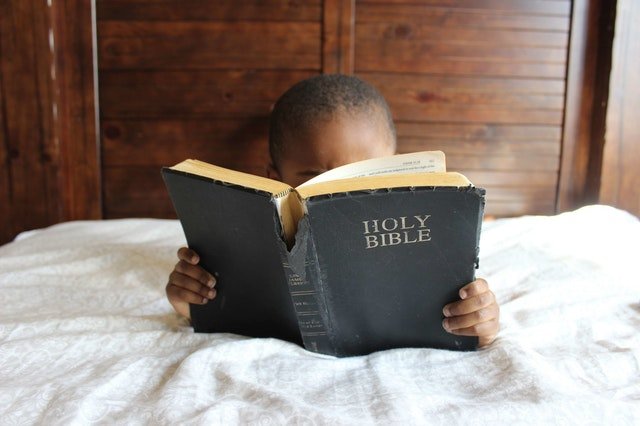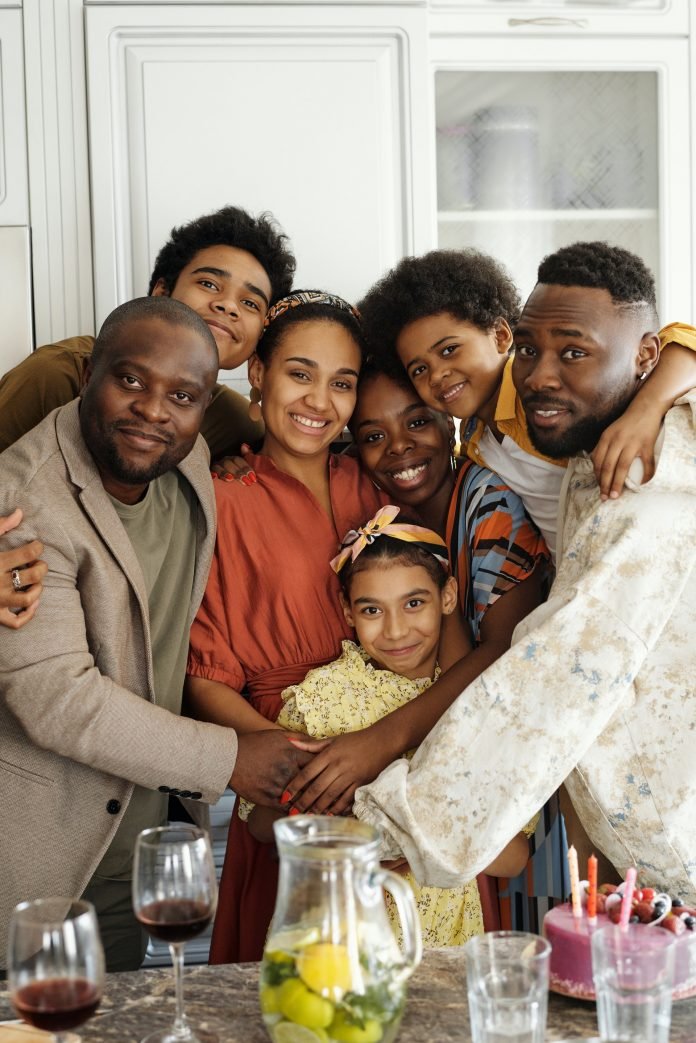Although every African home is unique, it’s safe to say there is an unmissable pattern in upbringing. You might dress differently or have a different staple dinner, but the startling similarities are always the same. Surprisingly, African kids are almost always raised the same way no matter where they are brought up. Because of this, you can see certain common but hidden traditions in every home. Whether you were born abroad or arrived sometimes in your early childhood, it’s the same story. If your family came from sub-Saharan Africa, you can most likely relate to the following scenarios.
RECOMMENDED: The Best Natural Beauty Products You Can Make From Home: African Clean Beauty
6 Things You Will Always See In An African Home
Your grandparents correcting your parents like children
It doesn’t matter if your dad is in his 50s, he will calm down and listen like a small child when your grandparents speak. It’s a wonder to see how well this works and it becomes a whole show to watch when it does. Your parents can never be corrected, chastised, or properly advised by anybody, but when grad mum and grandad are in the house, they magically become teachable.
You will be raised with the rod

For a lot of African parents, spare the rod and spoil the child is a favorite mantra. You can identify someone who grew up in a typical African home by this old-fashioned way of upbringing. You will also be grateful for it in your adult years.
RELATED: What Really Goes On When You Get Punished In An African Home?
You’re in serious trouble if you throw a tantrum
You’re never allowed fits of temper. If something goes wrong and you yell, curse or slam the door, you’re in ‘hot pepper soup’. Everyone in the house will be praying for you because only God can help you when you behave like that in your parent’s house.
Meeting all your extended family is a myth
It’s not possible to meet all of your extended family because they are probably as many as the sand on a seashore. If your house is a free home for all, you will be blessed to meet many of them. This is because the practice of having relatives over for extended periods is normal. Without such arrangements, you may never even hear about some of your relatives until you meet them at a family wedding someday.
You must do well in school

You simply have no other option than to perform excellently in school. If you came 3rd in class, you will probably hear statements like “The person that came first, does he have two heads?”. You will also be blackmailed with stories of how your parents and grandparents had to trek 100 miles without shoes to get an education. This leaves no room for you to shame the family with poor results when schooling has been made so convenient for you.
Your parents call you to pass them the remote
This has to be one of the most annoying occurrences in African homes, but it happens almost every day. Your parents will call you from your sleep, the garden, the attic, just anywhere to hand them the TV remote that is 15 centimeters away from their chair. God help you if you hiss or complain!
15 Things You Will Never See In An African Home
Your parents admit they are wrong
It doesn’t matter what you think of what you’ve been taught in school, your parents know it all and they have the final say. They are demi-gods and they can never be wrong. If they say that grass is blue, you better believe all grass is no longer green because their word never fails. On this pedestal, it becomes impossible for them to admit when they are wrong. On a rare occasion where your parents acknowledge any wrongdoing, you will simply be too shocked to even notice.
Practicing the family religion is a choice

Attending religious gatherings and practicing the religion are not suggestions in an African home, they are requirements. This topic is not even open to debate. You have no choice whatsoever on the matter and must comply or face serious consequences. You can probably make your own choice on religion when you grow older and are out of the house but your parents will probably never like this either.
You’re allowed for sleepovers
African parents are big on privacy and proper upbringing. Because of this, you may never be allowed to a single sleepover in your entire childhood. Your parents have to have known the other family since the beginning of time to let you stay over at their house. This is because they need to vet everything you will be eating, drinking, and hearing while you’re there.
YOU MAY ALSO LIKE: Meghan And Harry In Montecito: All About The Couple’s $14.7 Million Home
There is soda in the fridge
Soda is never for your benefit so if you see it, it’s simply a sign that guests are coming over. If there isn’t a special event around the corner, you can forget about ever seeing any soda anywhere, ever.
Not knowing how to cook

It is virtually impossible to grow up in an African home and not know how to cook. Cooking is more than a chore, it is a natural occurrence and a very good time to bond. You will learn all kinds of dishes from running kitchen errands. Also, expect to cook for the house when you come of age, especially if you’re a female child.
YOU MAY ALSO LIKE: 5 Quick African Style Vegetable Recipes for Dinner
Lack of respect
This is the abomination of all abominations and can never be seen in an African home. Respect is everything and it is excepted in every waking moment. You can’t call a grown-up by their name, it’s aunty and uncle to you forever. If your friends don’t greet your parents, kiss that friendship goodbye because you will be immediately detached from ‘bad influence’ so your good manners are not corrupted.
Respect, Courtesy, and Hierarchy by Age
Not only must you address every African person who is older than you “uncle” or “auntie” by default, everyone from the clan or tribe of your spouse is essentially your “in-law.” Cursed by the discontent of tribal identity and geographical dislocation, Africans for sure have trouble coming together as one. However, make no mistake that once you identify as an African, certain public manner and decorum is expected of you.
Language and religious divide, as potent as they are in undermining the united front, have not changed the show of respect and courtesy. As a young person born by African immigrant parent (s) abroad, you will assimilate rather quickly into the African culture if you can grasp this concept of respect. “Hierarchy” by age is key in African culture; and adults don’t defer to the young ones, but the other way around. Never call someone who obviously is older than you by their first name unless they literally express that you should do so.
Hip Pop Chants, Belt Waistline, and Hair Color
You are probably laughing reading this if you are already familiar with what goes down in African immigrants homes. African parents do not appreciate their young adults presenting as the “Lord of the Streets.” Chanting the latest hip pop beats, savage TikTok dancing, and much scary for them, coloring your hair or sagging – all these could potentially put you at odds very quickly in an African home. Now, if you are doing all the above, always on 95-100 percentile in your grades, no trouble in school, and coming home on time as planned, you perhaps can get away with it. You will of course be a genius if you can strike this balance!
The Bottom Line
It might not be fun during the growth stage but growing up in an African home can be exciting. I hope you enjoyed these funny but true scenarios found in every African home. It’s truly a wonder how every African parent seems to follow the same pattern, but the story is the same no matter what city, town, or country you grew up in. At least for my generation, I know this is true because of the testimonies of my friends and myself.
Your turn: what are some common scenarios you can relate to growing up as an African immigrant? I’m not sure I captured the full picture in this post so share your experiences in the comments below.





